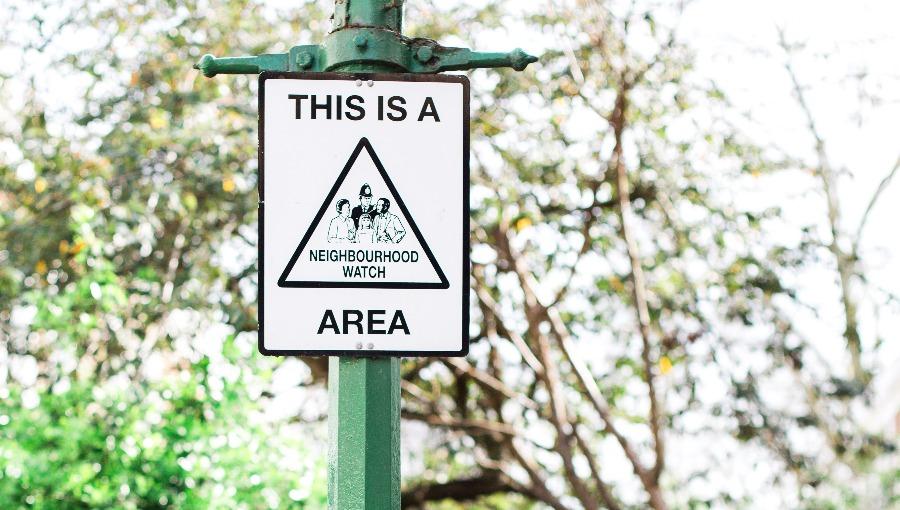Craig Johnson
Is Your Divorce Public Record?
The realities of (and alternatives to) your divorce records being open to public view.

Today, divorce is hardly what it used to be, a shameful event that families kept secret and neighbors whispered about. We have incorporated divorce into our understanding of marriage: Sometimes a marriage doesn't work out and there's good reason to end it and move on.
Nonetheless, you may not want the neighbors to know about your divorce. Potential employers are likely to find out about your divorce too, since nowadays it is becoming more common for employers to run background checks.
PeopleWhiz searches divorce records across all 50 states at once.
Divorce court records can contain a wealth of information about divorcing spouses, including info about their finances, their children, the reasons they are divorcing, and their personal lives.
Search Anyone FreeWhat's Included in Divorce Public Records?
Divorce records available on the internet are almost never entire divorce files, although they would point a nosey person in the direction of where to request and view the whole divorce file.
A divorce entails many documents and filings to cancel and reorganize the legal duties and responsibilities of matrimony. Affidavits and other potentially embarrassing and sensitive divorce documents could be in the divorce file. Your ex might have written about you, and that writing is attached to your divorce file.
Generally, the divorce file is accessible at the court clerk's office and viewable there. However, different states and courts have different restrictions on who can view/copy full divorce court records.
"Many courts will give copies of divorce court records to only the parties in the case and their attorneys. People without a direct interest in the case might be allowed to only view—not copy—certain documents," writes DivorceNet.
Divorce records could include a number of documents according to DivorceNet, such as:
- Divorce certificates. Issued by the office that keeps track of vital records in your state (such as the health department or office of vital records), divorce certificates contain minimal information about a divorce, such as the names of the parties, the address of the court where the divorce was finalized, and the date it was finalized. People often want a copy of a divorce certificate to find out if someone is divorced or to show proof of divorce.
- Divorce decrees. A divorce decree is the court's order finalizing a divorce, and what's inside can vary greatly. Some decrees contain details about the terms of the divorce, such as property division, spousal support, child custody, and child support. Other decrees might provide scant information about the parties and simply reference another document that settles the terms of the marriage.
- Divorce court records. The most detailed type of divorce record is the court's own file—a collection of all the documents, along with transcripts and recordings of in-court proceedings. Divorce court records can contain a wealth of information about divorcing spouses, including information about their finances, their children, the reasons they're divorcing, and their personal lives.
An online divorce record, on the other hand, is usually limited to who, what, when, where, and why. The records usually contain the following information.
- Your name and the name of your ex-spouse
- Marriage location
- Divorce location
- Divorce date
- Reason for divorce
- Number of children, if any
- Applicable court judgement, such as:
- Property division
- Alimony or other spousal support
- Custody agreements, including child support
With the knowledge of the divorce location, anyone with a little time and motivation could look up your whole divorce file at the courthouse.

It's possible to seal divorce records.
State laws exclude a few types of filings from being public record, in essence "sealing" these documents. For example, some states seal documents alleging or detailing domestic abuse. Likewise, psychological examinations of spouses and similar documents written during custody disputes are often kept confidential. All of a judge's notes and first drafts are protected too, as are internal memos from his or her staff.
The most common concern of having divorce records public is religion. Many religions frown on divorce, if not forbid it. If the records are public, a person who has (or wants) a divorce may worry about friends and family finding out.
The Open Nature of Public Records
All court proceedings are public by default because transparency in our legal system is in the best interest of the citizens. In fact, open public records has First Amendment protection. Anyone with time to visit the local courthouse and make a request at the records desk has been able to view records.
Since the advent of digitized records and the internet, of course, “visiting” happens across all 50 states at the tap of a button or two. It's one thing to accept that a private detective or a nosey neighbor can see your records in person at the courthouse, and quite another to know that your info is viewable to anyone worldwide with an internet connection.
Related
How to seal your court records
Vital records/vital statistics.
Divorce records are classified as vital records (sometimes called vital statistics), records that mark the major milestones of a person's life. Birth, marriages, divorces, death—in anyone's biography, those could be the chapter heads.
Some people lament the open nature of divorce records, but viewed in the context of vital statistics, it makes sense. If we cannot verify one another's major life milestones, we could fall for all kinds of fraud. Anyone could claim to be the secret wife of royalty, an outcast from a prominent family, or the heir to a giant fortune in need of your bank account for a secret transaction, after which you will get a cut of the take. Autobiographical misrepresentation was commonplace before public records.
Anyone who has ever used marriage/divorce records to discover whether a partner is cheating is grateful for the openness of public records.
Alternatives to Public Records Access
State laws vary, but divorce hearings are usually open to the public by default. However, if your divorce involves minor children (particularly if there are allegations of abuse), a judge may decide to hold all or part of a divorce hearing in private.
"Filing documents 'under seal' is a procedure for keeping information out of the public record," writes divorce lawyer Karen Covey. "Unless you happen to be wealthy, well known, or well connected, persuading a judge to seal your divorce court records is not likely to be easy."
If confidentiality is very important to you and your spouse, know that most divorces may be resolved through mediation, which is private negotiation. In private, all of the highly personal details behind the divorce can come out and drive the negotiation, but the public won't hear about them because mediation is generally not open to the public. There must still be a record of your divorce in court, because the only way to get a divorce is by a judge, but the record will just be the basic info outlined above, none of the messy, personal, or even scandalous documents surrounding the divorce.
Search Anyone



